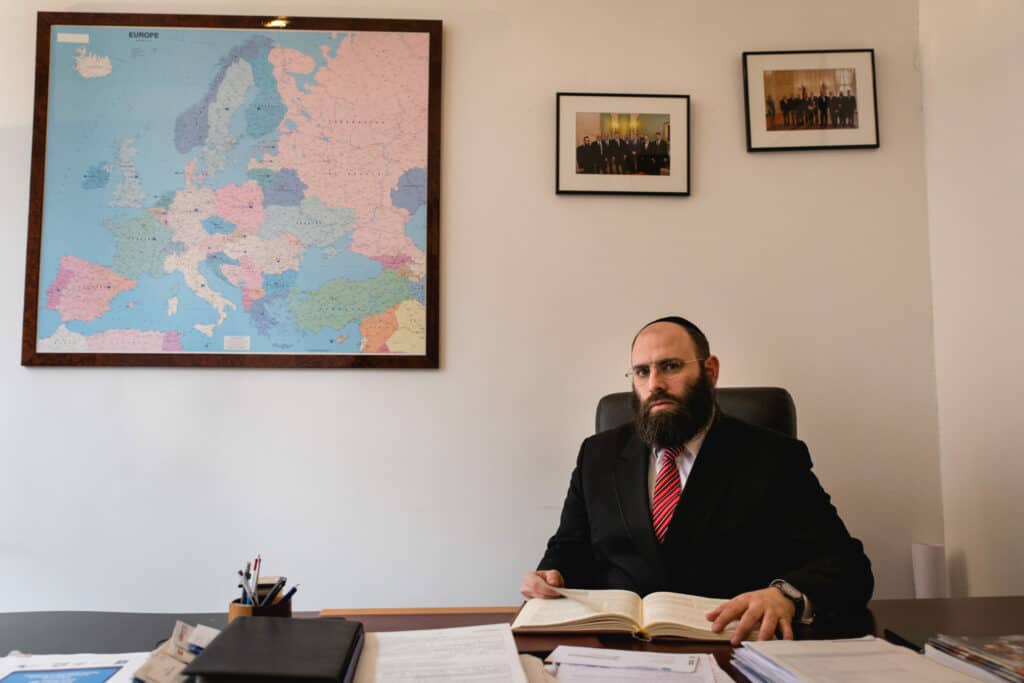Yesterday, the European Jewish Association has had the honour of welcoming at its headquarters the Ambassador of Bosnia and Herzegovina to the European Union, H.E. Madam Emina Merdan, and the Mission’s Minister-Counselor, Ms. Miranda Sidran.
Her Excellency has presented the EJA’s Chairman, Rabbi Menachem Margolin, the original of the Rosh Hashanah congratulatory letter received earlier from H.E. Dr. Denis Zvizdić, Chairman of the Council of Ministers of Bosnia and Herzegovina. H.E. Madam Ambassador has also expressed and conveyed H.E. Mr. Chairman’s condolences regarding the Wednesday shooting near a synagogue in the German city of Halle, resulting in the tragic deaths of two people nearby.
During the meeting, we have in particular discussed Bosnia and Herzegovina: the country’s tragic recent past, its modern European aspirations, the multicultural and multi-religious nature of its society as well as the local Jewish community, having its roots in the Sephardic Jews fleeing from Spain more than five centuries ago.
The Jewish community of Bosnia and Herzegovina, especially if compared to many others throughout Europe, is quite special – there have never been any ghettos here, with the Jews always having been considered an integral part of the local society, with no inherent Antisemitism carried by their neighbours and compatriots. While the modern Bosnian Jewish community is much smaller than it used to be, it is very active, while the heritage of Ladino is carefully preserved. In turn, established in 1997, the Interreligious Council of Bosnia and Herzegovina unites representatives of the Catholic and Orthodox Christians, Muslims and Jews – working together to build a better future.
Potential cooperation between the Mission and the EJA has also been discussed – both sides have expressed sincere interest in further dialogue and carefully exploring such possibilities of collaboration on topics of common interest and concern. We are very grateful to Her Excellency for this visit and wish H.E. Ambassador Merdan the best of luck and much energy in her important work.














